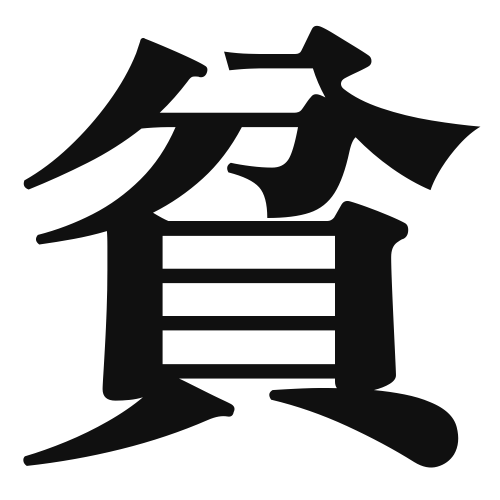1. Overview of Meaning
The kanji “貧” (pronounced “hin”) means “poor” or “poverty.” It represents a lack of wealth or resources, often associated with financial hardship.
2. Formation and Radical
The kanji “貧” is a phonetic-ideographic character (形声文字). It is composed of the radical “貝,” which relates to money or valuables, and the phonetic component “賓,” which suggests a sound association. Together, they convey the idea of lacking wealth.
3. Examples of Usage
Common words and phrases that include “貧” are:
- 貧乏 (びんぼう, binbō) – poverty
- 貧困 (ひんこん, hinkon) – impoverishment
Example sentence in daily conversation:
「彼は貧乏で、いつもお金に困っています。」
(He is poor and always struggles with money.)
4. Synonyms and Antonyms
Similar kanji with related meanings include:
- 貧弱 (ひんじゃく, hinjaku) – weak or insufficient, often used to describe something lacking in quality or quantity.
Antonyms include:
- 富 (とみ, tomi) – wealth or riches.
5. Cultural and Historical Background
The concept of poverty is significant in Japanese culture, often reflected in literature and art. The kanji “貧” appears in various proverbs and idiomatic expressions, such as:
- 「貧乏暇なし」 (びんぼうひまなし, binbō hima nashi) – “A poor person has no time,” indicating that those in poverty often work hard without rest.
This highlights the cultural understanding of the struggles associated with poverty in Japan.
